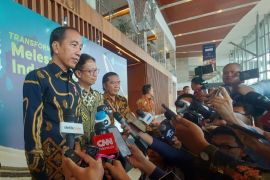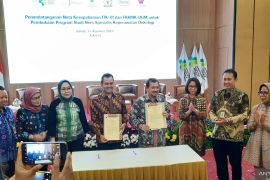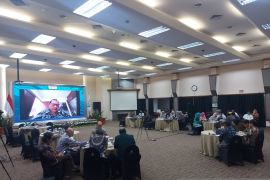"Right now there are only 40,000 doctors while the number, according to our monitoring and survey, should be minimally 70,000," Ribka Tjiptaning from the House of Representatives (DPR) Commission IX overseeing among others health issues said to newsmen here on Wednesday.
Right now the ratio of doctors and community members is 1 o 3,400, she said.
Under the conditions how could good and quality public health service be made available, she said.
She said a lot of people especially from the economically weak group can not enjoy doctors` service.
On the other hand, she said, there are now around 15,000 would-be doctors could would not be able to practice due to the Indonesian Doctor Competency Test (UKDI) problem.
A lot of medical graduates are unable to practice because they have no UKDI certificate, she said.
"This is the problem. It is regrettable that they who have worked hard to become doctors are finally unable to practice because they have not passed the UKDI test," she said.
Ribka said the government should not have hindered them with the license issue because she believed they mininally could conduct diagnosis.
"It is impossible that the newly graduated medical students could not give an infusion or check patients. They would be accustomed to if they practice often and not merely wait for the UKDI license," she said.
In Java island alone, she said, only 40 percent of community health care centers have doctors. So, the situation outside the island must be worse. She warned the shortage potentially could make the existing doctors become pragmatic in giving their service to the public.
Doctors, she said, would prefer treating patients who have money due to the shortage. "Right now there are averagely only one to two doctors available at a community health care center," she said.
The legislator from the opposition Indonesia Democratic Party Struggle (PDIP) said her side would continue to solve problems in the health sector from service to health facilities.(*)
H-YH/HAJM/F001
Editor: Jafar M Sidik
Copyright © ANTARA 2011











